- Learning time
- 20 minutes
- First play time
- 150 minutes
Alien Frontiers
Designed by: Tory Niemann
In Alien Frontiers players take the role of different cultures trying to colonise an un-named planet in the centre of the gameboard. They colonise using dice (representing their spaceships) that land on different facilities orbiting the planet, which give them different actions. What action they choose depends on what dice they roll on their turn – but although there is a wide streak of chance in the game, it also has room for strategy too.
The game is essentially a race to put a predetermined number of colonies on the planet – how many depends on how many players.
Every player begins with three ships (three dice) and on their turn they roll their dice and choose where to assign them on the board. The facilities do various things – you can grab the key resources of solar energy and ore, which in turn can be used to build a new ship (each player can have up to six in total), you can sacrifice a ship to place a settlement, or pay ore to build a settlement outright, you can even steal resources from each other… Certain facilities require a pair of the same number; one requires three of a kind and one requires a ‘straight’ – without these numbers on your dice, you can’t make use of that facility.
But it’s not a game that allocates a win to the purely lucky. How you utilise your dice rolls is key to winning – you can also use them to gain a Tech card – these come with their own special powers, and they can give you a big advantage on your turn.
When you place your dice is also relevant, as between each turn they sit on the facility and block it off from the other players. Only when your turn comes around again do you remove your ships and reroll them – at which point those facilities become available again.
The placing of settlements on the planet also contributes to your game – players can share different regions on the planet, but a player with the majority of settlements in any particular region gets an advantage that can be the crucial difference between winning, or not.
Note that the person who places their last settlement triggers the game end, but does not necessarily win. Points are awarded for each settlement and also each majority in the regions – as well as the odd tech card.
The guru's verdict
-
Take That!
Take That!
No direct combat, but with resource stealing, blocking, and trying to grab majorities on the planet, Alien Frontiers is perhaps not for the easily offended.
-
Fidget Factor!
Fidget Factor!
Alien Frontiers starts fast but can slow down if anyone has collected more than a couple of Tech cards and given themselves even more options than the starter set. A possible variant is to play without the cards and give that orbital station a new function.
-
Brain Burn!
Brain Burn!
Working out the logistics of your move can get tougher with more tech cards and more ships.
-
Again Again!
Again Again!
The randomness of dice and tech cards mean no two games are ever the same. And the dice-rolling is always fun because rather dictating your turn it simply gives you a set of options.

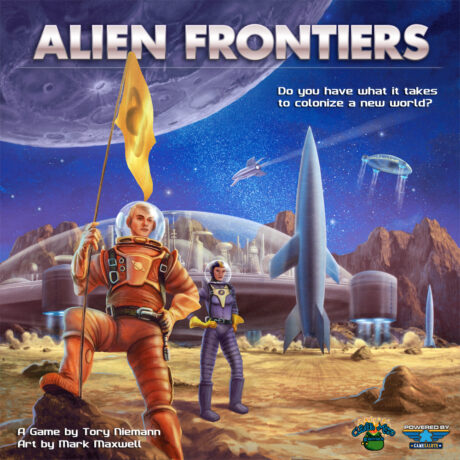
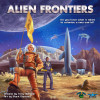
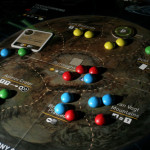
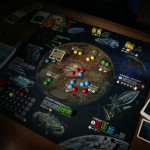
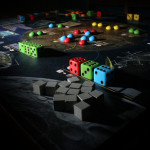
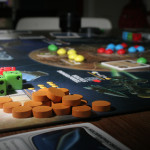
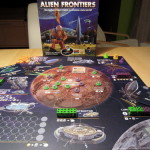
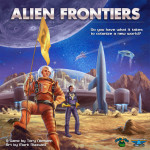


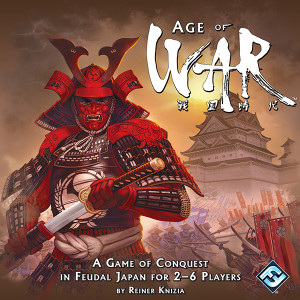
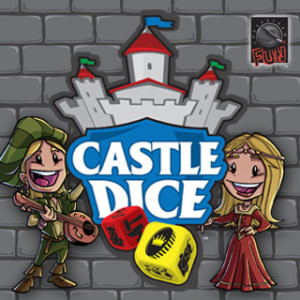


Sam says
The central idea of Alien Frontiers - roll dice, place them - is great. The addition of cards that give extra powers as well as the powers awarded for controlling regions on the planet can make the game a little convoluted, especially as you can't really plan ahead with complete certainty. What starts out as a fast-moving game of chucking dice and implementing their rolls begins, in our experience, to get bogged down in the procedure of resolving the effects on the cards, particularly if one or more players has really gone that route in a big way. We've played before without using the cards and substituting something else for that space - it's maybe not as intricate a game then as the designer intended, but it certainly moves a lot quicker and for kids especially that worked a treat. As it stands though, recommended with caveats.